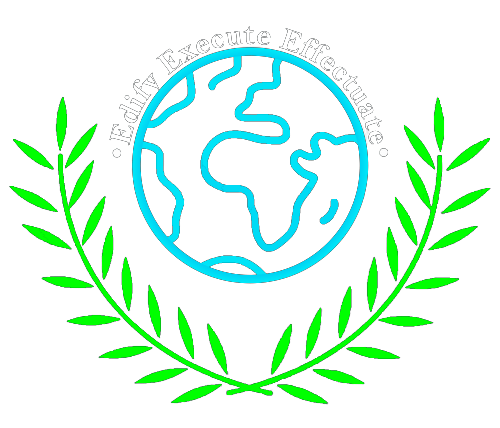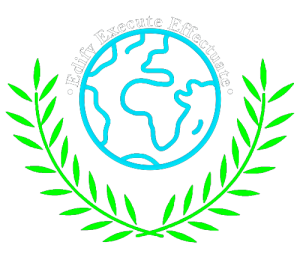By Megha Agarwal
Abstract:
Women’s education is a pivotal aspect of a sustainable future in India. Education embraced inclusivity, gender equality, and quality learning for all. In this research article, we tried to emphasize the different challenges faced by women in a society, the role of education in a woman’s holistic development, and how an educated woman tackles all the hurdles in India. We also shed light on the various government initiatives related to women’s empowerment. We observed the phenomenon that women’s education is a key opportunity for the pathway of sustainable change.
1. Introduction:
Every nation’s growth depends on balanced pillars with a stronger foundation. And women are one of the strong pillars of a nation’s sustainable growth. But unfortunately, gender disparity in India is the deeply embedded patriarchy customs and beliefs that prioritize males over women. It impacted several social customs, including child marriage, dowries, female infanticide, and domestic abuse.(Ezhilarasan, G. et al., 2024). Education plays an important role in shaping their overall well-being of them. Education gives empowerment to women and empowerment and capacity building enable women to gain practical information and learning for their better Livelihoods (Revathi . et al., 2024).
Women’s education is a pivotal aspect of fostering sustainable change in a society. By investing in women’s education, health, economic opportunities, and political participation, India can unlock the full potential of its human capital and speed up progress towards achieving the Sustainable Development Goals and building a more equitable and prosperous society for all.(C, Paramasivan & G. Ravichandiran, 2024). Women constitute almost half the human race. Education exposes them to new ideas, thoughts, and processes, modernization, and social change. Hence, thinking about harmonious development without educating women is quite impossible. (Mittal, 2021)
2. The Pathway of Transforming Women’s Education:
Women are the mirror of a society. She can present herself in any form. She has the capabilities to mold herself in any role, for education is the key opportunity to unlock this hidden potential of them. Education gives power to a woman to become strong physically by giving her knowledge about sports, exercise, health-related aspects, and good physical health; this will definitely benefit her mental health.(Priya, 2024)
In order to break barriers, we need to provide various opportunities, various laws, and different projects to expand the path of women’s education.(Paul & et al., 2024)
Here are the major different regions in which an educated woman embarks on the journey of sustainable change:
1. Women as a First Teacher: A woman is the first role model for her children. She plays an important role in shaping the overall well-being of every child. If a woman is educated, she can transform every life around her. She has the ability to nurture, care for, and provide a safe atmosphere.
2. Socio-cultural growth: Women can provide an important channel for the revolution needed in the creation and establishment of a powerful and effective PCS—Peace Culture System in schools. (Dhal,2022)
3. Leadership Role: An educated woman is a great leader. She can lead hostility management in foreign policies. She plays a crucial role in the development of a nation.
4. Lady Bazigar as a Vocational Trainer: Women are trained to make some very beautiful products such as baskets, bags, embroidery, etc. And these trained women start their handicraft as a second source of income for the family and can lead their livelihood.(Mahato & Barman, 2020)
5. Women’s as a all rounder developer: An educated woman embraces the opportunity, and she works as a guiding light for all in any field; be it doctor, engineer, teacher, scientist, politicians, entrepreneur, psychologist, motivational speaker, housewives, etc.
2.1. Major Challenges:
Despite the women’s greater role in society for sustainable development, a lot of women are still facing various challenges in their lives. Here are the major challenges mentioned below:
1. Balancing religious and cultural norms: Different religious beliefs within a secular educational framework emerge as a multifaceted challenge. The clash between religious observances and academic schedules further underscores the complexity of aligning these aspects (Ahmed & et al., 2023)
2. Role stereotyping: Role prejudice creates barriers to gender equality. Men were expecting to do manual labor, and women were bound with household chores. For instance, due to the responsibilities associated with childrearing, women may be viewed as less reliable workers.(Saha, 2023)
3. Distance and Safety Concerns: Geographical barriers, including long distances to schools and safety concerns, pose significant challenges to girls’ education, particularly in rural and remote areas. (T. James, 2024)
4. Economic Constraints: The cost of tuition, textbooks, transportation, and other related expenses can be prohibitive for women’s education in India. (Putcha & et al., 2023)
5. Unequal Access to Resources: Women in India still face significant barriers to accessing education, healthcare, employment, and property rights, particularly in rural and marginalized communities. (C. Paramasivan & G. Ravichandiran, 2024)
6. Career Choice: Age as a Hurdle for Job Security: A clash in the biological clock with the academic career generally hampers women’s desire to pursue STEM. One of the major concerns for the STEM workforce includes recruitment age and job security. (Wakdikar & et al., 2024)
2.2. Key Initiative to tackle Hurdles:
To tackle the above challenges from the path of women, the government has started an important initiative in order to increase female literacy. Here are a few schemes for the betterment of women’s education:
1. Mahila Samakhya Programme (Kumar & Shobhana, 2022)
2. PRAGATI (Yadav & Singh, 2020)
3. Digital Gender Atlas (Saha, 2023)
4. Short Stay Home for Women and Girls (Dutta, 2024)
5. Pradhan Mantri Shakti Kendra (Pandey, 2022)
6. Support to Training and Employment Programs for women (STEP) (Arif & et al., 2018)
2.3. Solutions: A Sustainable Change for Society
1. In order to represent equality for all, we need to overcome gender disparities at home, school, society, or in every place of our nation.
2. Women’s safety is a major concern nowadays; we really need to initiate more strict rules and regulations for a safe environment.
3. We need to sponsor more programs specific to women’s menstruation health care for breaking taboos and stigmas in rural areas for inclusion of everyone in society without any hesitation.
4. A teacher’s assistant to an underprivileged girl child can lead to foster awareness amongst parents for sending their children’s school.
5. Women are also individual people; we really need to respect, care for, and provide every resource, assistance, cooperation, and support to all women. So that she can take proper time to educate herself and embrace all initiatives to provide quality life to her children.
3. Conclusion:
To summarize, women’s education is a cornerstone of a sustainable society. Education gives empowerment and an opportunity to fly high to every woman. An educated woman embraces the challenges and develops a roadmap for her family, society, and the nation’s wellbeing. But unfortunately, we can’t deny the fact that women are still facing physical, psychological, economic, social challenges, etc. Along with government initiative, we should have to strengthen our law and need to overcome gender disparities, unsafe environments, health issues, and social stigma for a better sustainable change so that we can provide an equitable, justifiable, and empowered atmosphere around the upcoming generation.
References:
1. Arif, M. et al., (2018). Transformation Of India: A Study of Women’s Empowerment through Education. Elementary Education Online ; Vol 17 (Issue 4): pp. 2314-2320. https://www.researchgate.net/publication/368666764_Transformation_Of_India_A_Study_Of_Women’s_Empowerment_Through_Education
2. Ahmed et al., (2023) Women’s Leadership in School Education: Barriers and Opportunities in Karachi. Qlantic Journal of Social Sciences and Humanities. https://www.researchgate.net/publication/374750393_Women’s_Leadership_in_School_Education_Barriers_and_Opportunities_in_Karachi
3. B Revathi et al., (2024). Achieving Sustainable Women Empowerment 425 WOMEN EMPOWERMENT THROUGH EDUCATION AND INCLUSIVE GROWTH IN INDIA. ACHIEVING SUSTAINABLE WOMEN EMPOWERMENT through EDUCATION, EMPLOYMENT and ENTREPRENEURSHIP. https://www.researchgate.net/publication/383314177_Achieving_Sustainable_Women_Empowerment_425_WOMEN_EMPOWERMENT_THROUGH_EDUCATION_AND_INCLUSIVE_GROWTH_IN_INDIA
4. Dutta, J. (2024). Women Education, Key Issues of Women Legal Rights Violence and Their Protection Given by the Constitution of India. Journal of Xi’an University of Architecture & Technology. https://www.researchgate.net/publication/380366245_Women_Education_Key_Issues_of_Women_Legal_Rights_Violence_and_Their_Protection_Given_by_the_Constitution_of_India
5. Dhal, P. (2022). Education and Policy of India for Women Empowerment and Making Peaceful Harmonious Civilization. SSRN Electronic Journal. https://www.researchgate.net/publication/359737593_Education_and_Policy_of_India_for_Women_Empowerment_and_Making_Peaceful_Harmonious_Civilization
6. Ezhilarasan, G. et al., (2024). “An Analysis on Women Enrolment in Higher Education in India.” Shanlax International Journal of Economics. https://www.researchgate.net/publication/381173581_An_Analysis_on_Women_Enrolment_in_Higher_Education_in_India
7. James, T. (2024). Influence of Women’s Education on Poverty Reduction. RESEARCH INVENTION JOURNAL OF LAW, COMMUNICATION AND LANGUAGES. https://www.researchgate.net/publication/382265006_Influence_of_Women’s_Education_on_Poverty_Reduction
8. Kumar, S. & Shobana, D. (2022). STATUS OF WOMEN EDUCATION IN NORTH – EAST INDIA. International Journal of Multidisciplinary Educational Research. https://www.researchgate.net/publication/359929318_STATUS_OF_WOMEN_EDUCATION_IN_NORTH_-EAST_INDIA
9. Mittal, A. (2021). Impact of Education on Women Empowerment in India. VEETHIKA-An International Interdisciplinary Research Journal. https://www.researchgate.net/publication/363652824_Impact_of_Education_on_Women_Empowerment_in_India
10. Mahato, A. & Batman, P. (2020). Women Education and Empowerment in India. In book: Women Empowerment (pp.01-06) https://www.researchgate.net/publication/344211713_Women_Education_and_Empowerment_in_India
11. Pandey, D. (2022). A study on the situation of women’s education in India. ANORA: Aeon of New Organized Research and Academics (pp.79-83) https://www.researchgate.net/publication/360312115_A_study_on_the_situation_of_women’s_education_in_India
12. Putcha, C. et al., (2023). Challenges Of Women In Accessing Higher Education In India. Journal of Namibian Studies History Politics Culture. https://www.researchgate.net/publication/374054106_Challenges_Of_Women_In_Accessing_Higher_Education_In_India
13. Paul, S. et al., (2024). Reflective Thoughts of Women Education in India. NSOU-OPEN JOURNAL. https://www.researchgate.net/publication/381915258_Reflective_Thoughts_of_Women_Education_in_India
14. PARAMASIVAN C, & Ravichandiran .G. (2024). Achieving Sustainable Women Empowerment 317 SWOT ANALYSIS: SUSTAINABLE WOMEN EMPOWERMENT IN INDIA -PAST, PRESENT AND FUTURE. ACHIEVING SUSTAINABLE WOMEN EMPOWERMENT through EDUCATION, EMPLOYMENT and ENTREPRENEURSHIP. https://www.researchgate.net/publication/383313678_Achieving_Sustainable_Women_Empowerment_317_SWOT_ANALYSIS_SUSTAINABLE_WOMEN_EMPOWERMENT_IN_INDIA_-PAST_PRESENT_AND_FUTURE
15. Ramya, MS. & Priya, S. (2024). WOMEN EMPOWERMENT THROUGH EDUCATION. Shalax. ISBN: 978-93-5891-103-9 | Vol -2 | 85. https://www.researchgate.net/publication/383062774_WOMEN_EMPOWERMENT_THROUGH_EDUCATION
16. Saha, S. (2023). Role of Education in the Empowerment of Women in India: Barriers & Government Initiatives. International Journal of All Research Education and Scientific Methods (IJARESM) https://www.researchgate.net/publication/370526839_Role_of_Education_in_the_Empowerment_of_Women_in_India_Barriers_Government_Initiatives
17. Yadav, D. & Singh, S. (2020). “Status of Women Education In India.” Shanlax International Journal of Economics. https://www.researchgate.net/publication/347315842_Status_of_Women_Education_in_India
18. Wakdikar, S. et al., (2024) Hurdles and Challenges Perceived by Women Scientists in India. Journal of Women Empowerment and Studies. https://www.researchgate.net/publication/380473571_Hurdles_and_Challenges_Perceived_by_Women_Scientists_in_India
19. PARAMASIVAN C, & Ravichandiran .G. (2024). Achieving Sustainable Women Empowerment 317 SWOT ANALYSIS: SUSTAINABLE WOMEN EMPOWERMENT IN INDIA -PAST, PRESENT AND FUTURE. ACHIEVING SUSTAINABLE WOMEN EMPOWERMENT through EDUCATION, EMPLOYMENT and ENTREPRENEURSHIP. https://www.researchgate.net/publication/383313678_Achieving_Sustainable_Women_Empowerment_317_SWOT_ANALYSIS_SUSTAINABLE_WOMEN_EMPOWERMENT_IN_INDIA_-PAST_PRESENT_AND_FUTURE
20. Saha, S. (2023). Role of Education in the Empowerment of Women in India: Barriers & Government Initiatives. International Journal of All Research Education and Scientific Methods (IJARESM) https://www.researchgate.net/publication/370526839_Role_of_Education_in_the_Empowerment_of_Women_in_India_Barriers_Government_Initiatives


